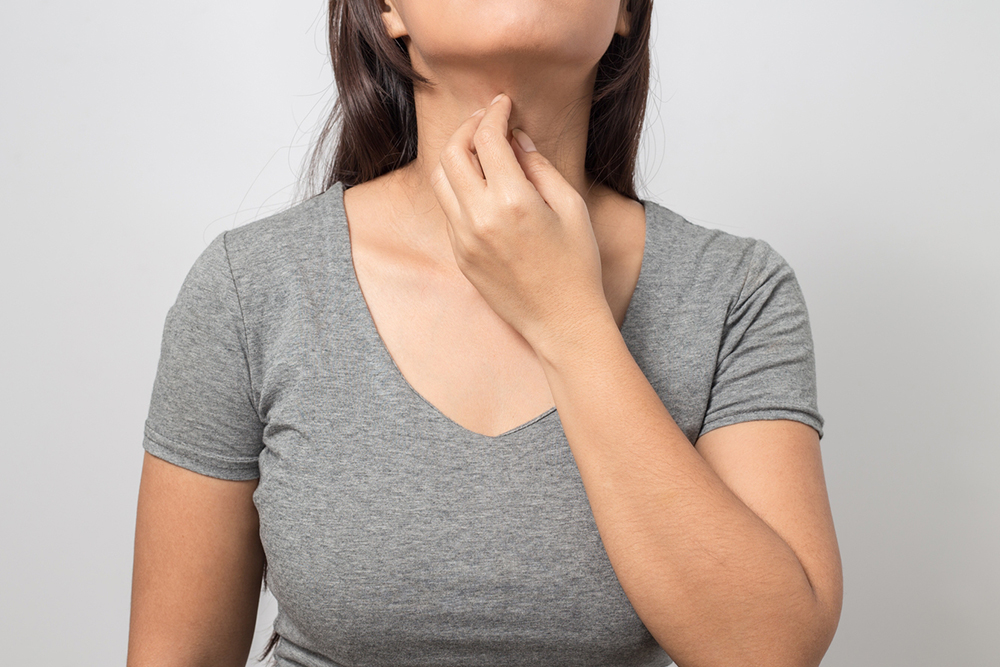Itchy Skin Bumps in Seniors – Causes and Tips to Manage Them
Aging brings about various changes to the skin. This, combined with prolonged exposure to certain stimuli, lifestyle habits, genetics, and food intake, can make the skin thinner and more sensitive, making it susceptible to certain conditions and causing itchy and painful skin bumps. Moreover, frequent occurrences and flares can lead to inflammation and damage the skin’s barrier. Recognizing what causes them and following a few tips can help seniors manage and prevent itchy skin bumps.
Itchy bump causes
1. Hives
Urticaria, or hives, is a condition characterized by raised, itchy areas on the skin. Intake of various foods, like peanuts and seafood, causes hives in those with existing allergies.

Depending on the cause, hives can last up to several weeks. For instance, acute and physical urticaria, which can be caused by foods, insect bites, and exercise, typically lasts anywhere between a few hours and six weeks. On the other hand, chronic urticaria, triggered by hepatitis or thyroid dysfunction, can last more than six weeks.
2. Bed bugs
It is often difficult to identify bed bug bites, as they can resemble those of other insects and can sometimes take up to two weeks to materialize.
3. Contact dermatitis
It is an allergic reaction that develops when an individual’s skin comes into contact with an allergen, like latex, specific metals, or products. The bumps may take a day or two to develop, and the symptoms may take about two to three weeks to disappear. Contact dermatitis can cause itching, inflammation, and often painful blisters.
4. Scabies
Itch mites, which cause scabies, dig their way through the skin’s top layer, the epidermis, and lay eggs. A tunnel forms, and it can sometimes be sizable on the surface of the skin, appearing as raised, skin-colored, crooked lines. Another common symptom of scabies is itchy bumps on the skin, typically visible on the elbows, wrists, between the fingers, and behind the knees.
5. Eczema
It is also known as atopic dermatitis and can cause purple or red, itchy, irritated skin that may develop into bumps. Eczema can also make the skin thicker, flaky, and scaly, causing it to change color. Scratching often worsens eczema and increases the risk of infection. Seniors can develop this because of genetics and environmental factors, forcing the immune system to overreact to triggers like sweat or laundry soap. Itchy bumps from eczema can develop on the hands, knees, scalp, elbows, and back.
Tips to manage itchy skin bumps
Itchy skin bumps can be painful and irritating to deal with. So, seeking medical help to understand their causes and triggers is advisable. Additionally, seniors can consider a few remedies and lifestyle changes to reduce and prevent itchy bumps.
1. Avoid triggers
Seniors who frequently get hives may have allergies and probably know what triggers them. For instance, they might be allergic to nuts, pollen, materials, etc. So, it is best that they avoid things and situations that can increase the chances of developing an allergic reaction. This is because bumps that develop on the skin from an allergic reaction are often itchy. Scratching these can make them worse and damage the skin barrier. They can also lead to severe infections and cause other health complications.
2. Moisturize daily
Seniors must apply hypoallergenic and fragrance-free moisturizer to affected skin at least once daily. Those with dry skin should apply thicker creams, which may work better than lotions.
3. Treat the scalp
Seniors should use shampoos recommended by their dermatologists. This is because certain ingredients in the shampoos can cause itchy bumps on dry or oily scalps. On the other hand, some shampoos may contain specific ingredients that will help soothe the skin and reduce itchy bumps.
4. Bathe with lukewarm or cold water
Depending on what is causing the itchy bumps, individuals should bathe in lukewarm or cold water. To further reduce the itchiness, add some Epsom salt, baking soda, or ground oatmeal to the water. Seniors should also consider investing in a mild cleanser, limiting its use to the underarms and intimate regions. Additionally, they should refrain from vigorous scrubbing and limit their shower time. They should also wear loose cotton or linen clothing to avoid skin irritation.
5. Go for regular health checkups
While individuals might take all the necessary steps to manage itchy skin bumps, rashes, and other conditions, they are not always preventable. So, it is important for individuals, especially seniors, to go for regular health checkups. Doctors can conduct a thorough diagnosis and determine if they are at risk of potential skin conditions or other health complications.

